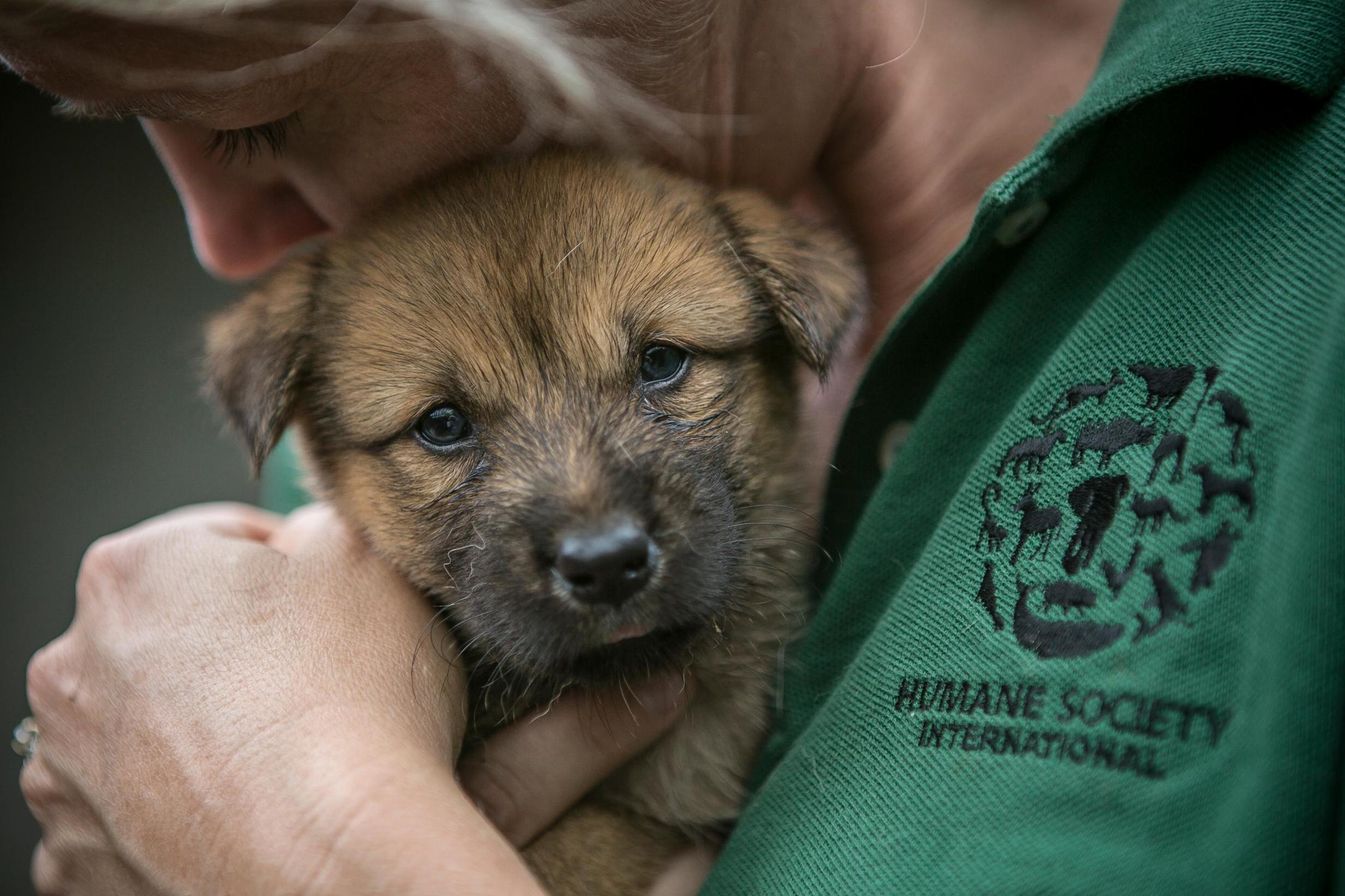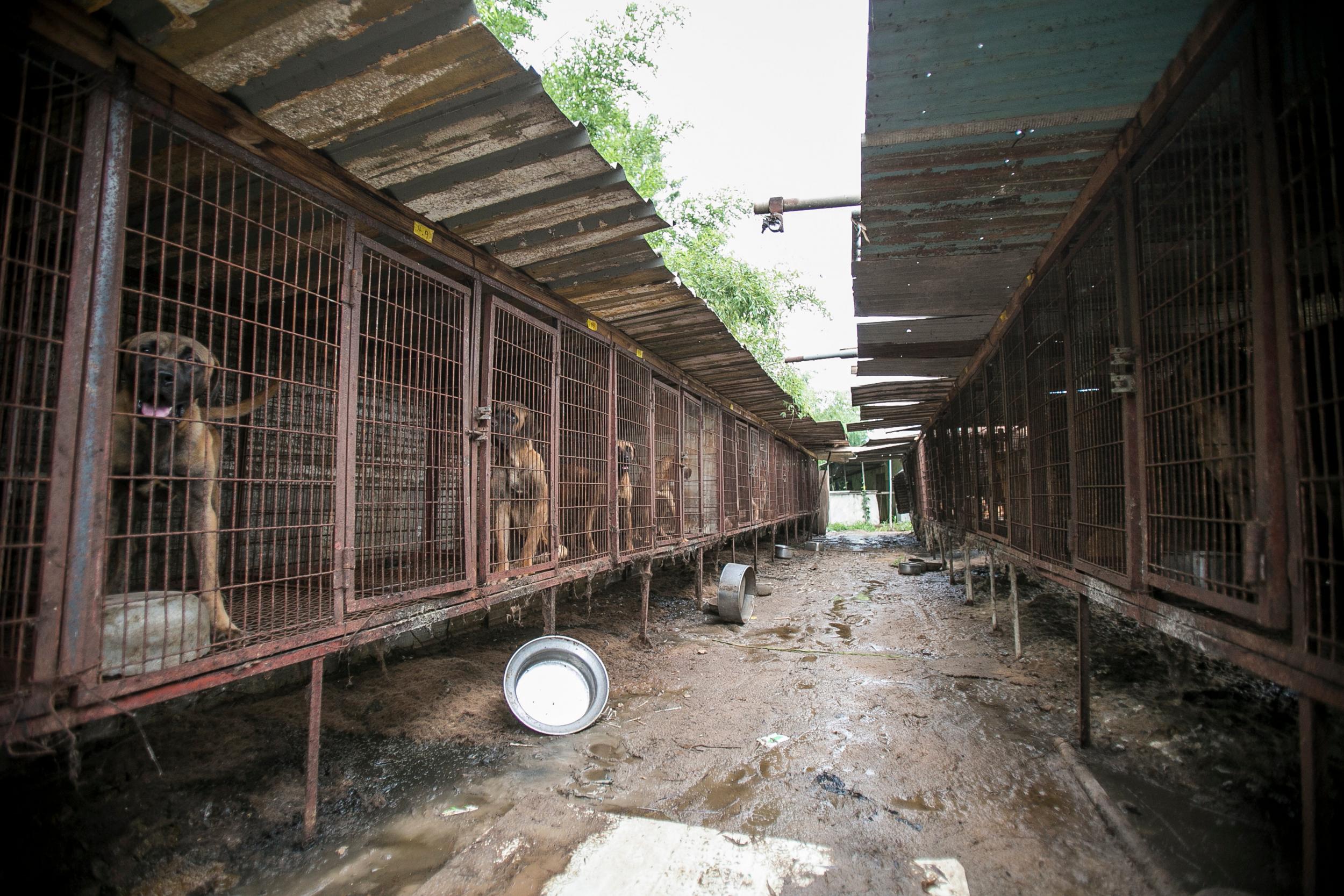South Korea: 149 dogs freed from meat farms days before they could be killed and turned into soup
Newborn puppies among the animals rescued ahead of notorious dog meat festival
Your support helps us to tell the story
From reproductive rights to climate change to Big Tech, The Independent is on the ground when the story is developing. Whether it's investigating the financials of Elon Musk's pro-Trump PAC or producing our latest documentary, 'The A Word', which shines a light on the American women fighting for reproductive rights, we know how important it is to parse out the facts from the messaging.
At such a critical moment in US history, we need reporters on the ground. Your donation allows us to keep sending journalists to speak to both sides of the story.
The Independent is trusted by Americans across the entire political spectrum. And unlike many other quality news outlets, we choose not to lock Americans out of our reporting and analysis with paywalls. We believe quality journalism should be available to everyone, paid for by those who can afford it.
Your support makes all the difference.An animal protection group freed 149 dogs from cages days before they were due to be were killed and eaten.
The dogs, including 15 newborn puppies, were destined to be turned into spicy soup in South Korea.
The rescue operation came ahead of the country's annual Bok Nal dog meat festival, when more than a million of the animals are killed and eaten.

Many of the dogs found on the farm in rural Yesan, in western South Korea, were injured, had diseases, or were suffering from pressure sores.
Humane Society International (HSI) said it freed the dogs after being contacted by the farm's owner, who wanted help to shut it down.
"With every dog meat farm we close, we are not only saving the lives of these poor, terrified dogs caught up in this cruel trade, but we are also presenting a successful blueprint for change that we hope the government will follow," said Nara Kim, the charity's dog meat campaigner for South Korea.
"Eating dog is a dying practice in Korea, especially among young people. However, the Bok Nal days of summer still lead many to eat dog meat soup in the mistaken belief that it will invigorate the blood in the sluggish heat."
HSI has closed down nine farms since 2014, rescuing and rehoming nearly 1,000 dogs. It said it provided support to farmers who wanted to escape the trade.
The dogs freed from the Yulan farm this week had been destined to be sold to a nearby meat market, where they would be electrocuted and butchered in time for Bok Nal.
They are to be flown to animal shelters in the US and found new homes. Fifteen of the animals were too small to fly and will be kept with their mothers in South Korea until they are old enough to be transported.
More than 2.5 million dogs a year are reared on thousands of dog meat farms across South Korea, according to HSI.
Most South Koreans do not routinely eat dog meat, but it is traditionally consumed by some in a peppery soup known as "boshintang" during Bok Nal.
Opposition to the dog meat trade is growing among in the country, and newly elected President Moon Jae-in recently adopted a dog rescued from a farm.

Ms Kim said: "Some people say that dog eating is Korean culture, but you won’t find many young people who feel it’s a cultural habit we want to hold on to.
"It’s intellectually lazy to use culture as an excuse for cruelty because all cultures evolve over time and we often shed practices of the past.
"We are hopeful that things will change, and that the new Korean president will advance a new culture of compassion to animals.
"I am so happy that for these dogs the dog meat trade is over, but we have to fight on for the millions who are still suffering.”

Join our commenting forum
Join thought-provoking conversations, follow other Independent readers and see their replies
Comments